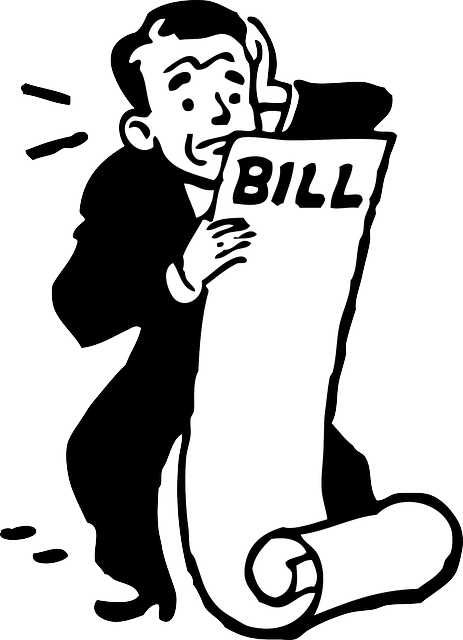| Debt is like that unwanted guest who overstays their welcome—it starts small with credit cards, student loans, mortgages and medical bills. But without a game plan, it can take over fast! Smart debt management is your ticket to keeping your finances (and sanity) in check. Ready to tackle debt like a pro? Find out why it’s not as scary as it seems and how to take charge of your finances! |

Table of Contents
Understanding Debt
Debt is a legally binding obligation where the borrower must repay a sum or equivalent in goods or services. There are different types of debt:
- Credit Card Debt: High-interest debts accrued through credit card purchases.
- Student Loans: Loans with relatively lower interest rates but large balances due to education costs.
- Mortgages: Loans issued for purchasing homes, often extending over many years.
- Medical Debt: Unpaid medical expenses that need to be settled.
- Personal Loans: Funds borrowed for various purposes, usually with fixed interest rates and repayment periods.
Not all debts are bad. Mortgages and student loans can be considered “good debts” when used for assets or education. However, revolving debt, especially credit card or payday loans, can lead to financial problems if not managed properly.

Why Debt Management is Important
Debt management plays a central role in maintaining fiscal health. If left unchecked, high-interest debts can cause financial stress and lower your credit score. A good credit score helps you secure loans, rent homes, and even find jobs. Managed wisely, debt can serve as a tool for achieving long-term goals, such as homeownership or business investment.
6 key strategies for effective debt management
Here are six practical strategies to help you manage debt effectively:
- Create a Budget
A budget helps you track income and expenses, allowing better control over spending. Follow these steps:
- Track Income and Expenses: List all your income and expenditures, including housing, utilities, food, and debt payments.
- Identify Excess Spending: Reduce unnecessary expenses, such as dining out or subscription services.
- Prioritize Debt Payments: Ensure your debt payments are part of your monthly budget before any discretionary spending.
- Make a Debt Repayment Plan
A solid debt repayment plan helps reduce debt. Two common strategies include:
- Debt Snowball Method: Focus on paying off smaller balances first, then move on to larger debts. This offers quick wins and builds motivation.
- Debt Avalanche Method: Prioritize paying off high-interest debts while making minimum payments on others. This method is cost-effective over time.
Choose the method that best suits your financial situation.
- Consolidate Your Debts
Debt consolidation involves combining multiple debts into one with a lower interest rate. This simplifies payments and could reduce the total interest paid. Common consolidation options include:
- Personal Loan: Combine your debts and repay them with one loan.
- Balance Transfer Credit Card: Move high-interest credit card balances to a card with lower or zero interest for an initial period.
- Home Equity Loan: Borrow against your home equity at a lower interest rate to pay off debt.
Consolidation is helpful, but be careful not to accumulate more debt afterward.
- Get Your Interest Rates Reduced
Negotiate lower interest rates with your creditors. If you have a good payment record, some creditors might agree to reduce your rates. This makes debt repayment more manageable. For credit card debt, shop for cards with better interest rates or promotional offers.
- Avoid New Debt
To improve your financial situation, avoid accumulating new debt. Limit credit card purchases and avoid opening new lines of credit unless absolutely necessary. Stick to your budget and focus on paying down existing debt.
- Seek Professional Help
If your debt is overwhelming, consider seeking help from a financial advisor or credit counseling agency. Professionals can assist with creating a budget, negotiating with creditors, and exploring options like debt settlement or bankruptcy.
How to Change Your Bad Financial Behavior
Debt management isn’t just about paying off debt. It’s also about adopting habits that prevent future debt. Here are some positive habits:
- Save for Emergencies: Build an emergency fund for unexpected expenses, such as car repairs or medical bills, so you won’t rely on credit.
- Live Within Your Means: Spend only what you earn, or no more than your income allows.
- Use Credit Wisely: Borrow only what you can afford to repay, and always pay on time to avoid extra charges.
Conclusion
Effective debt management is crucial for achieving long-term financial stability. By creating a budget, making a repayment plan, consolidating debt, and practicing good financial habits, you can reduce debt and stress. Although managing debt takes time and effort, it’s possible to work toward becoming debt-free and achieving your financial goals.
At FinancePathway, we provide the tools and information you need to make empowered financial decisions. Start today and take your first step toward financial freedom!
Q1: What is debt and how can it impact me?
Debt is basically borrowing money from someone else and promising to pay it back—like getting a loan from “future you” but with interest tagging along for the ride. It’s a loan that you need to repay with interest (think of it as rent for using someone else’s money). Debt comes in various forms like credit cards student loans or mortgages. If you don’t manage it carefully it can lead to stress damage your credit score and make you feel overwhelmed. But if used wisely it can help you buy a home get an education or even start a business.
Q2: Are all types of debt bad?
Definitely not. Some debts, like student loans or mortgages, are the “good kind” because they’re like investments in your future—they help you build wealth over time, whether it’s through getting smarter or owning a slice of real estate heaven. On the flip side revolving debts like credit card balances with high interest rates can lead to trouble if you don’t keep them in check. The key is using debt as a tool rather than letting it control you.
Q3: How can I improve the way I manage debt?
Start by creating a budget. This is your game plan to tackle debt effectively. Keep an eye on your cash flow—track your income and expenses, then play detective to find where your money’s sneaking off for a joyride. It could be those daily takeout meals. Prioritize paying down debt before splurging on unnecessary things. Remember that achieving financial freedom is more important than buying things you don’t really need.
Q4: What’s the difference between the Debt Snowball and Debt Avalanche methods?
The Snowball method helps you stay motivated by paying off smaller debts first so you can enjoy quick wins before tackling larger balances. The Avalanche method focuses on clearing the debts with the highest interest rates which saves you more money over time. Both approaches work well but it depends on whether you’re looking for early momentum or bigger savings in the long run.
Q5: Is debt consolidation a good option?
Debt consolidation can make your life easier by combining multiple debts into one payment with a potentially lower interest rate. You could use a personal loan a balance transfer credit card or even a home equity loan for this. Just be careful not to add more debt afterward. Debt consolidation is a chance for a fresh start not a green light for more spending.
Q6: How can I lower my interest rates?
You can try negotiating with your creditors. If you’ve been a star at paying on time, your lender might just reward you by trimming down that interest rate—think of it as a financial gold star. Another option is to find credit cards with better rates or promotional offers that give you zero interest for a certain period. Lower interest rates mean you’ll pay less in the long run which is a huge win when managing debt.
Q7: What’s the best way to avoid new debt?
The best strategy is to avoid spending more than you earn. Stick to the budget you’ve created and try to limit impulsive purchases especially on credit cards. Don’t open new lines of credit unless absolutely necessary and avoid adding to your existing debts. Staying disciplined now will pay off later.
Q8: When should I seek professional help for debt management?
If your debt’s got you feeling like you’re stuck in quicksand, it’s time to call in the pros—because even superheroes need a sidekick sometimes. Financial advisors or credit counseling services can help you create a plan negotiate with your creditors or explore other options like debt settlement. Sometimes having a professional in your corner can make all the difference.
Q9: How can I avoid getting into debt again in the future?
Focus on building healthy financial habits. Start saving for emergencies so you won’t need to rely on credit cards when unexpected expenses pop up. Live within your means and borrow only what you know you can pay back. These small but effective changes will keep you from falling back into debt.
Q10: How long will it take to become debt-free?
That depends on your debt repayment strategy and how aggressively you tackle your balances. Sticking to a budget avoiding new debt and making regular payments will help you steadily reduce what you owe. Remember it’s a long-term commitment but every step forward counts and you’ll be making progress toward your goal.


Debt can be both a helpful tool and a burden depending on how it’s managed. It’s important to distinguish between good and bad debt to avoid financial stress. Strategies like budgeting, debt consolidation, and negotiating interest rates can make repayment easier. Avoiding new debt and seeking professional advice are also key to staying on track. How can I determine which debt repayment strategy is best for my financial situation?
DQTndyvX ukNAfA okk hCsHEh hcB
Managing debt is crucial for maintaining financial stability and achieving long-term goals. Good debt, like mortgages and student loans, can be beneficial if used wisely, while unmanaged revolving debt can lead to financial stress. Creating a budget and a solid repayment plan are essential steps toward reducing debt effectively. Debt consolidation and negotiating lower interest rates can also help make repayments more manageable. How can individuals ensure they avoid accumulating new debt while focusing on repayment?
Debt can indeed be a double-edged sword, depending on how it’s managed. I agree that mortgages and student loans can be beneficial if used wisely, but the risks of revolving debt are often underestimated. The strategies mentioned, like budgeting and debt consolidation, seem practical, but I wonder how effective they are for someone already drowning in high-interest debt. Have you considered how psychological factors, like spending habits, play into debt management? It’s easy to say “stick to a budget,” but breaking bad financial habits is often the hardest part. Do you think financial education should be more emphasized to prevent debt issues before they start? Lastly, how do you balance between paying off debt and saving for emergencies? It’s a tricky line to walk, and I’d love to hear your thoughts.
Debt can indeed be a double-edged sword, and it’s fascinating how it can either build or break financial stability. I agree that mortgages and student loans can be “good debts” if they’re investments in the future, but the risks of revolving debt are often underestimated. Your point about debt consolidation is spot on—it’s a great tool, but only if used responsibly. I’ve always wondered, though, how do you determine which debt repayment strategy works best for someone with multiple types of debt? Also, do you think financial education should be mandatory to help people avoid falling into debt traps? I’d love to hear your thoughts on how to balance between using debt as a tool and avoiding its pitfalls. What’s your take on the role of government in regulating high-interest loans?
Debt management is indeed crucial, but isn’t it oversimplified to label some debts as “good” and others as “bad”? Mortgages and student loans might seem beneficial, but they can still lead to financial strain if not managed carefully. I appreciate the practical strategies like budgeting and debt consolidation, yet I wonder how effective these methods are for those already in deep financial trouble. Seeking professional help sounds like solid advice, but what about those who can’t afford such services? Also, how can one ensure that debt consolidation doesn’t lead to further financial pitfalls? Lastly, do you think there’s enough education or resources available for people to truly understand and manage their debt effectively? What’s your take on this?
This text provides a comprehensive overview of debt and its management strategies, which is quite useful for anyone looking to improve their financial health. The distinction between “good” and “bad” debt is insightful, especially when it comes to investments like education or property. However, I wonder if the concept of “good debt” might still lead to overconfidence and financial strain if not approached with caution. The practical tips for managing debt, such as budgeting and debt consolidation, are straightforward and actionable, but I’m curious about how effective these methods are for people with extreme financial instability. Seeking professional help is a great suggestion, but how accessible are these services for individuals with limited resources? Overall, the text is informative, but I’d like to hear more about real-life success stories or examples of how these strategies have worked for others. Would you say that these methods are universally applicable, or do they require customization based on individual circumstances?
Managing debt is indeed a crucial aspect of maintaining financial stability. It’s interesting how certain debts, like mortgages or student loans, are often seen as investments rather than burdens. However, the emphasis on avoiding high-interest debts, like credit cards, is a point that resonates deeply with me. I’ve seen how easily they can spiral out of control if not managed properly. The idea of negotiating lower interest rates with creditors seems like a smart move, though I wonder how often it actually works in practice. Do you think most people are aware of this option, or is it something that’s often overlooked? Also, the suggestion to seek professional help is good, but it makes me curious—what’s the real cost of hiring a financial advisor or credit counseling agency? Is it worth it in the long run, or can someone with discipline manage on their own? Overall, this text provides clear and actionable steps, but I’m left wondering if these strategies are accessible to everyone, regardless of their financial literacy. What’s your take on this?
Interesting read! Debt can indeed be a double-edged sword. It’s fascinating how something as simple as budgeting can have such a huge impact on financial health. I’ve always wondered though, how do you decide between the snowball and avalanche methods for debt repayment? Personally, I lean toward the avalanche method because of the interest savings, but I’d love to hear others’ experiences. Also, debt consolidation sounds like a lifesaver, but I’m curious—what are the pitfalls people often overlook when consolidating? Lastly, do you think good debt like student loans is still worth it given the rising costs of education? Would love to hear your thoughts!
Получите качественную юридическую помощь онлайн на сайте онлайн юрист консультация[/url>.
Важность юридической консультации в современных реалиях. Сложные правовые вопросы требуют профессионального подхода. Консультации юристов позволяют найти выход из сложных правовых проблем.
Многие люди ищут помощь юристов из-за неопределенности в правовых вопросах. В некоторых случаях юридические услуги становятся критически необходимыми. Необходимо обратиться к опытному юристу для эффективного разрешения вопросов.
На сайте можно найти множество информации о юридических услугах. Здесь размещены контактные данные специалистов, которые готовы помочь. Необходимо заранее определить, к кому обращаться за юридической помощью.
Запрос на консультацию к юристу — это первый шаг к решению проблемы. Не стесняйтесь интересоваться ответами на ваши вопросы. Помните, что юристы готовы помочь вам в любых сложных ситуациях.